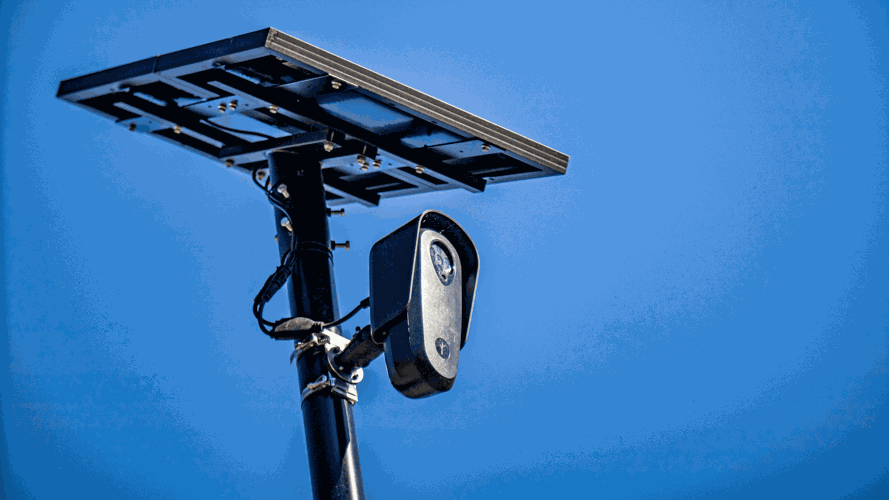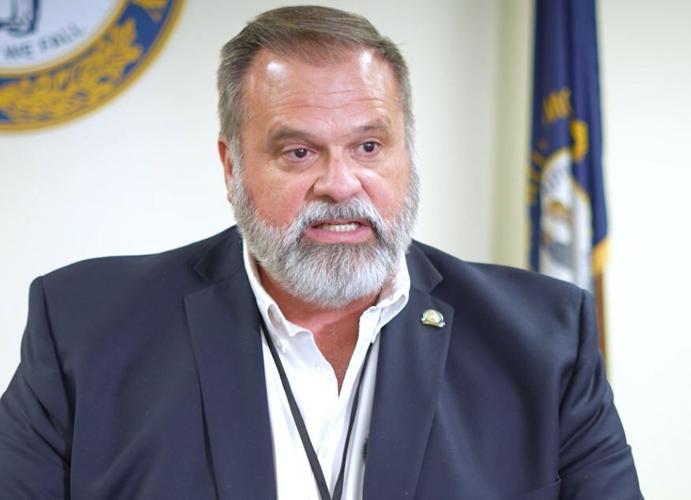LOUISVILLE, Ky. (WDRB) -- A wide-ranging privacy bill filed in the Kentucky General Assembly would set limits on how long police can keep data captured by license plate readers and create new restrictions for other emerging technologies.
House Bill 45 seeks to rein in the information, images and other personal data increasingly gathered by aerial drones. It would establish felony penalties for posting "deep fakes" of people without their consent; sets guidelines for humans getting microchips implanted under their skin; and outlaws secretly putting a tracking device on someone.
"This is really focused purely on you as an individual and someone trying to track you," said Rep. John Hodgson (R-Fisherville), the bipartisan measure’s chief sponsor. And that's just not appropriate unless it's a law enforcement reason, or a warrant, or some kind of legitimate business reason."
Joining as co-sponsors are Reps. Adam Bowling (R-Middlesboro) and Daniel Grossberg (D-Louisville), although Hodgson told WDRB News on Thursday he expects more legislators will sign on.
The effort to regulate the license plate readers comes after a similar bill faltered in the final days of the 2023 legislative session. Kentucky has no statewide standards for images collected by the devices, resulting in a patchwork of data retention policies, a WDRB News investigation found in 2022.
The cameras often are mounted to streetlights, overpasses and police cars. They capture not only license plates, but also show how often a vehicle passes by and take pictures of political stickers, bike racks and other identifying features.
Police departments in Kentucky increasingly tout the cameras’ role in helping find stolen cars and vehicles connected to investigations, but their growing use has raised alarms from civil libertarians and privacy groups worried that police are amassing data from people doing nothing wrong.
Under the bill introduced this session, law enforcement agencies, local governments and homeowners’ associations wouldn’t be allowed to keep license plate data for longer than 30 days unless it’s being used in a felony prosecution or is subject to a subpoena.
The limit would not apply to toll agencies such as RiverLink operator Electronic Transaction Consultants.

Kentucky Rep. John Hodgson, R-Fisherville. (WDRB Photo)
Hodgson said he doesn’t support adding more exceptions to the bill. The measure that died in the General Assembly last year was amended to let some private entities avoid the data retention rules for debt collection, parking enforcement, traffic research and commercial real estate development.
"I'm not interested in providing that to private entities that are doing, you know, car repos or tracking individuals, or private investigators," Hodgson said. "There's a whole host of negative things that can ensue from that."
Flock Safety, the Atlanta-based company whose cameras are widely used in Kentucky, endorsed last year’s legislation. It noted that its own data retention limit is 30 days.
Even so, images can be downloaded by police agencies and homeowners’ associations.
The other parts of the bill would:
Limit drone use. Except in select cases, people flying the remote-controlled aircraft would be banned from recording images of privately owned property without the owner or occupant’s "written consent." Exemptions include police that have a search warrant; law enforcement agencies that believe someone’s life is in danger; and property appraisers – as long as they also have written permission from a property owner.
Make "deep fakes" illegal. These are videos and other media that appear to show politicians or others saying or doing things that didn’t happen. Circulating a deep fake without the "depicted individual" giving their written consent would be a felony offense. There are exceptions, including satire or parody videos that disclose the manipulation.
Ban forced microchipping. The novel use of putting small microchips under the skin – in lieu of a key card or gym membership – has been documented abroad, in places like Germany. And while there are no known cases of the implants in Kentucky, Hodgson said the legislature needs to "get in front of that."
"If you are the government or an employer, you cannot compel someone to take that foreign electronic item and inject that in their body," he said. "I think there’s a bodily sovereignty that they can't violate. Somebody wants to do it? That's great. But as an employer, you can't coerce or reward people in any way for that."
Expand Kentucky law on tracking devices. State law already sets misdemeanor penalties for placing tracking devices on vehicles without the driver’s consent, but HB 45 would also make it illegal to secretly put a tracker on someone.
The legislation filed during the opening week of the General Assembly hasn’t yet been assigned to a committee. Hodsdon said he is hopeful the bill will move quickly, noting that it was received warmly during the interim session last year where prospective bills get discussed.
"What's not to like, you know?" he said. "It's bipartisan. Nobody likes being spied on. It doesn't cost anything to not spy on somebody."
Related Stories:
Copyright 2024 WDRB Media. All Rights Reserved.
























